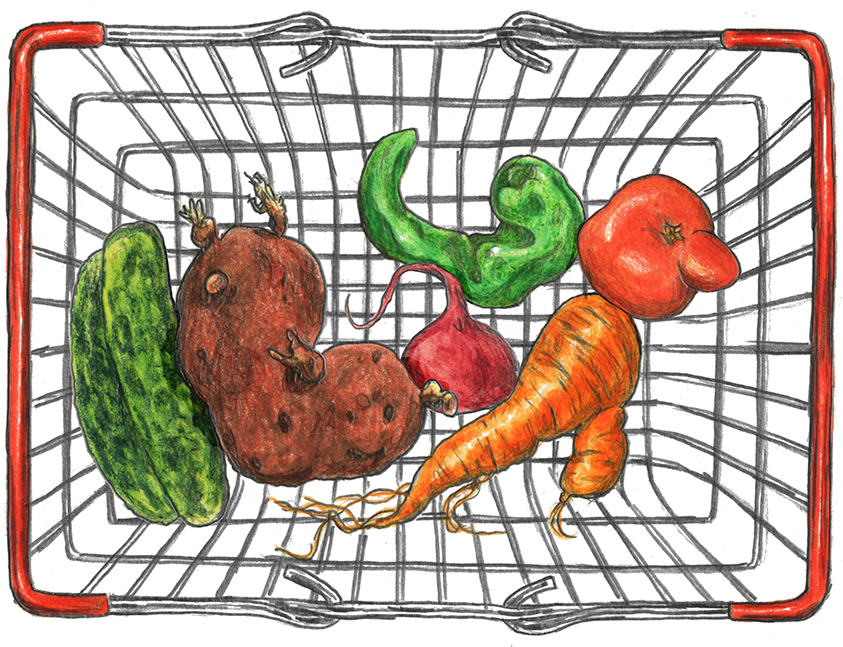Amid record high food prices, finding healthy and sustainable food can be a major challenge. But there are ways to save money while making eco-friendly choices at the grocery store, says Claire Marshall, an ambassador in U of T Scarborough’s sustainability office. Marshall, who has worked as an environmental technician protecting honeybees and once advised customers on produce as a Whole Foods employee, offers four savvy eco-shopping tips.
Show lumpy food some love
Shoppers tend to assume produce that looks perfect will taste perfect. That’s not true, Marshall says, and picking a slightly lumpy or wrinkled fruit or vegetable reduces what the grocery store ends up tossing. These can also be the foods that end up on sale. “It’s a whole different way of looking at food,” says Marshall.
Shop savvy
According to Statistics Canada’s monthly list of average food prices, the price of some fruits and vegetables remained relatively unchanged since last year. The cost of bananas, broccoli, cucumbers and potatoes has risen, but not by nearly as much as most cuts of beef and pork. You’ll also cut your carbon footprint by reducing meat consumption.
Do the math
Marshall advises to check whether options that cost a bit more actually contain more food. Check by dividing the price by the number of grams or millilitres in a package. Figure out the shelf life for your foods to pick ones that will last longer. Always check best-before dates and place newer items further back in your fridge.
Avoid food waste
If your fridge’s vegetable drawer leads you to forget your produce is there, try storing it in obvious places to avoid letting it rot. Give your fridge an audit before hitting the store to make sure you buy only what you will eat – and don’t go grocery shopping while hungry.
Recent Posts
People Worry That AI Will Replace Workers. But It Could Make Some More Productive
These scholars say artificial intelligence could help reduce income inequality
A Sentinel for Global Health
AI is promising a better – and faster – way to monitor the world for emerging medical threats
The Age of Deception
AI is generating a disinformation arms race. The window to stop it may be closing





